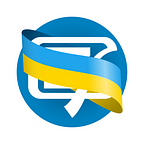The Mexican Standoff of PHP Frameworks [Video Infographics]
What are PHP Frameworks?
PHP is one of the most widely known and potent programming languages used today. However, despite the popularity of PHP, there are many businesses using PHP without making use of a quality PHP framework. This approach slows production time and increases costs. A PHP framework is advantageous because it provides you with modules and codebase to help structure and accelerate the web development process.
For CEOs, CTOs, product owners and those in the tech industry, choosing the right PHP framework can help cut production time and costs. However, every PHP framework is unique. Some do well when producing large web applications, whereas others do better when used to create web portals. Given the wealth of PHP frameworks available, it is important to conduct solid research in order to find the platform that’s right for you. Below we take a look at three of the most popular PHP frameworks (Symfony, Laravel and Yii) and break down which is the best, and why.
Symfony
One of the most famous PHP frameworks is Symfony, which has been specifically designed with web app building in mind. Ever since it was published in 2005, Symfony has been tailored to help build applications with simple user interfaces. Right now, Symfony has over 1,217, 658, 579 total downloads.
The simplicity of the design allows the user to easily create large-scale applications. With over 30 components onboard, even the most experienced designer has everything they could possibly need in one place. It’s no surprise that in 2017, Symfony has an average of over 100,000 downloads a day. Solid API integration with other third party apps enables you to support your app with other frameworks.
This makes it an ideal choice for companies looking to commission large open source projects. Likewise this frameworks compatibility with third party plugins like Twig, makes it much easier for developers to streamline their web application production. From a business perspective, Symfony helps cut production time on larger projects.
Laravel
Of all the frameworks available, Laravel is perhaps the most popular and easy to use. This “PHP framework for Web Artisans”, is one of the most versatile frameworks on the market today. As an MVC PHP framework, Laravel is best suited to creating complex back end systems. Today, Laravel has over 524,454 live websites online.
The framework features a variety of onboard tools such as Laravel Spark, which supports users with a variety of applications that offer features like two-factor authentication and invoicing. Likewise, Laravel’s Unit-Testing Support ensures that all coding is error free. Developers can test each part of an application before going live.
The biggest advantage of Laravel is that it helps to cut your overall web application development time. The reason is that there’s next to no learning curve. Even the most inexperienced user can run advanced features like object-relational mapping and blade template to lay the groundwork for their site. Unlike its competitors, the Laravel blade templating system lets users view PHP code during use as well.
Read more on our blog: https://www.zfort.com/blog/php-frameworks-standoff/
